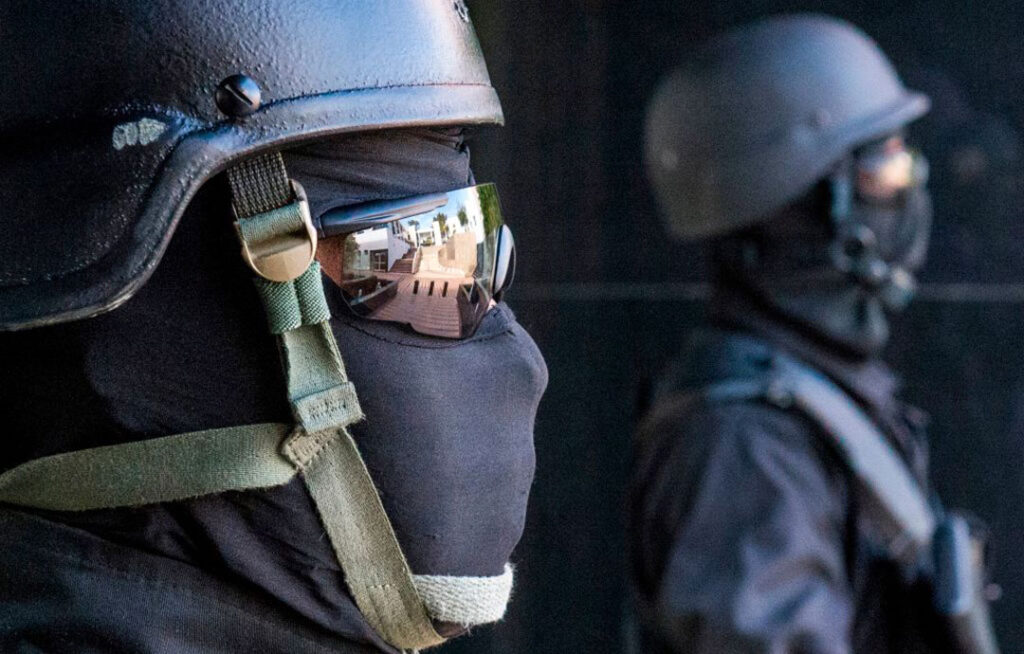ADF STAFF
May 16, 2003, is etched in the minds of many Moroccans. It was the day that five coordinated suicide bombings killed 43 people in Casablanca and shattered the security of a nation.
Ten days later, Parliament passed stringent anti-terror laws.
Fast-forward to 2020, and top headlines in Morocco include a terror cell dismantled, an insurgent plot foiled, and would-be militants arrested with weapons and explosive materials.
Morocco’s counterterrorism operation extinguished one of its biggest and most recent threats on September 10, as agents of the Central Bureau of Judicial Investigations arrested five extremists who had pledged allegiance to ISIS.
The suspects were found in Tangier and three sites in the Rabat region with kilos of ammonium nitrate, explosive belts and vests, bladed weapons and electronic equipment.
“The terror cell reminds of the events of May 16 in Casablanca, given the fact that its members are suicide attackers,” said Abdelhak Khiame, then director of the bureau, at a press conference in September. “It was a dangerous cell primed to go into action at any moment. If these attacks were carried out, they would have caused tragedies.”
The threat of terrorism in North Africa is ever-present, yet Morocco is the only country with low risk, according to December ratings by International SOS, a security services company. In fact, Morocco is one of just 12 African nations at a low risk for terrorism.
The bureau is part of Morocco’s General Directorate for Territorial Surveillance (DGST), which said in a November press release that it has dismantled 207 terrorist cells since 2002, including 32 ISIS cells since 2017.
Its robust, multifaceted approach has earned praise from around the world.
“Morocco has continued a comprehensive counterterrorism strategy that includes vigilant security measures, regional and international cooperation, and counter-radicalization policies,” the U.S. Department of State said in its 2019 Country Reports on Terrorism, which noted that terror arrests doubled from 2018 to 2019.
Morocco has developed a robust surveillance apparatus to monitor telephone calls and online searches, while its Interior Ministry has organized 50,000 auxiliary agents around the country to report unusual behavior. The country also deploys security forces to guard administrative buildings, airports and train stations.
The DGST says its approach to terrorism is twofold: Make arrests to prevent attacks, and fight extremist ideology through a deradicalization process provided to the country’s prisoners called the Moussalaha (meaning reconciliation in Arabic).
An April study by a Belgian think tank compared the anti-terrorism strategies of three North African nations and studied how Morocco deals with local Islamic extremists and returning foreign fighters.
“Morocco is the only one to adopt a systematic approach,” the report stated. “It is by far the best-prepared country in the region.
“It has strong security services that were further reinforced in recent years; it has adopted new laws to ease the prosecution of foreign fighters; and it has developed prison rehabilitation programs that are being scrutinized by other countries. Morocco is also very active in international forums such as the Global Counter-Terrorism Forum, sharing experiences with other European, African and Asian countries.”

